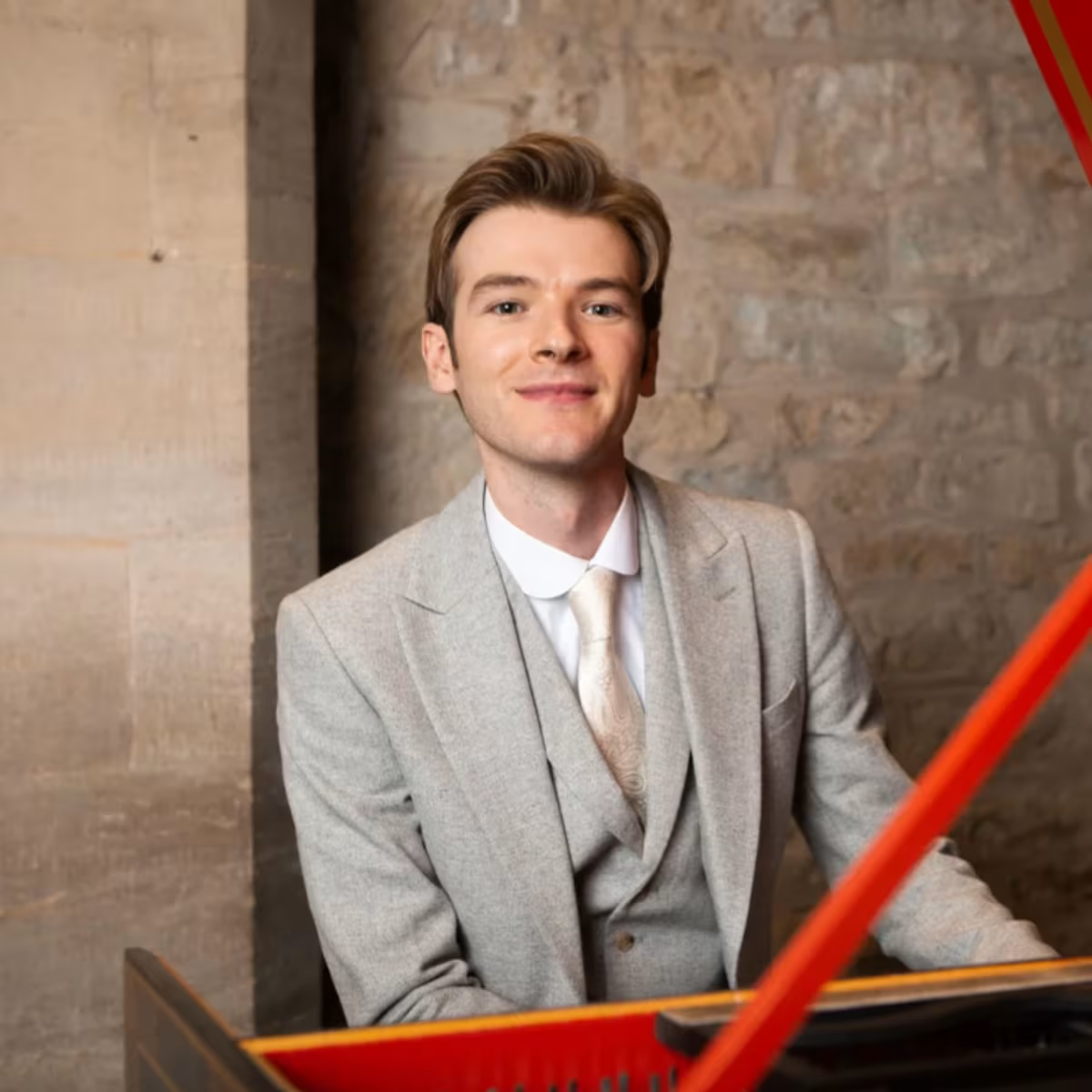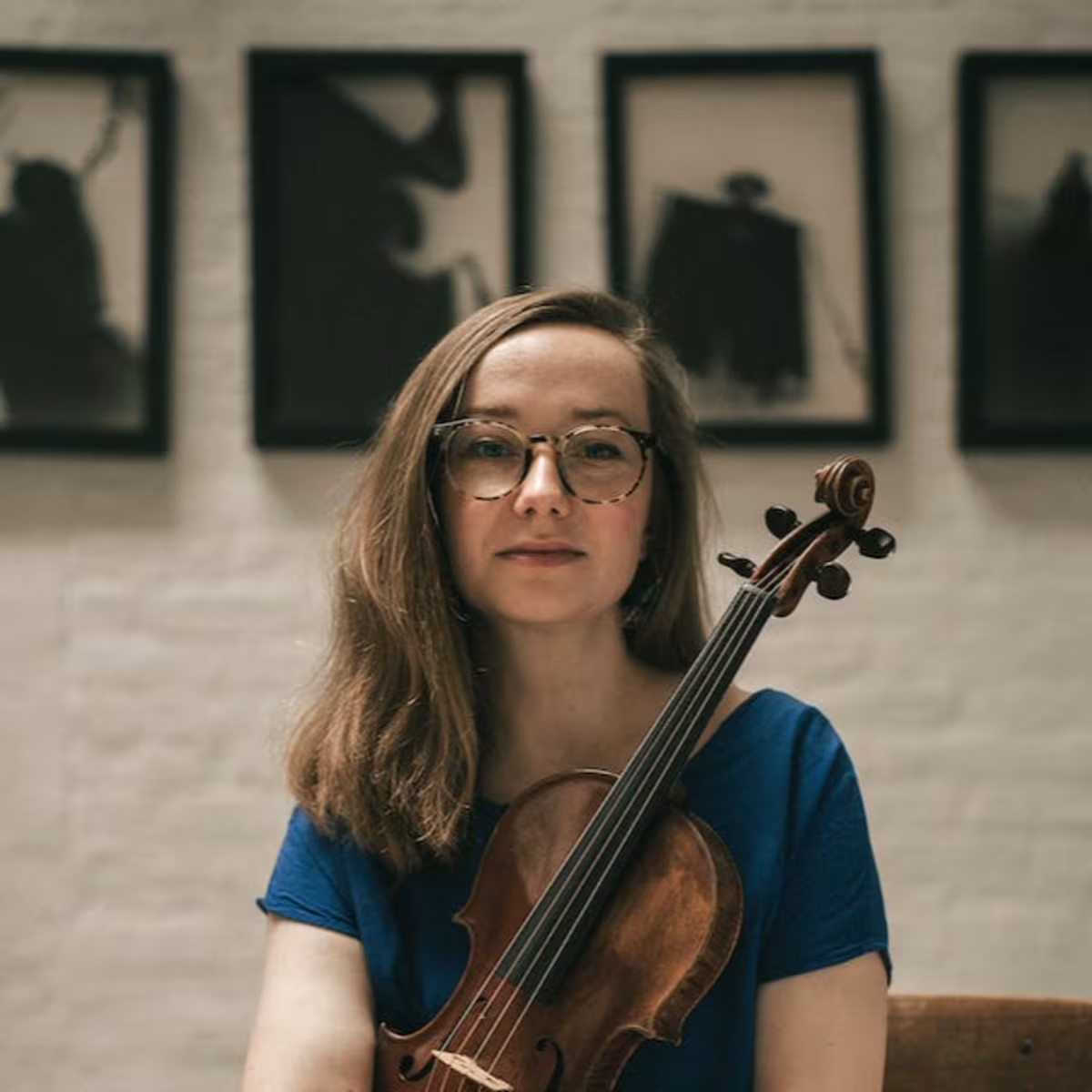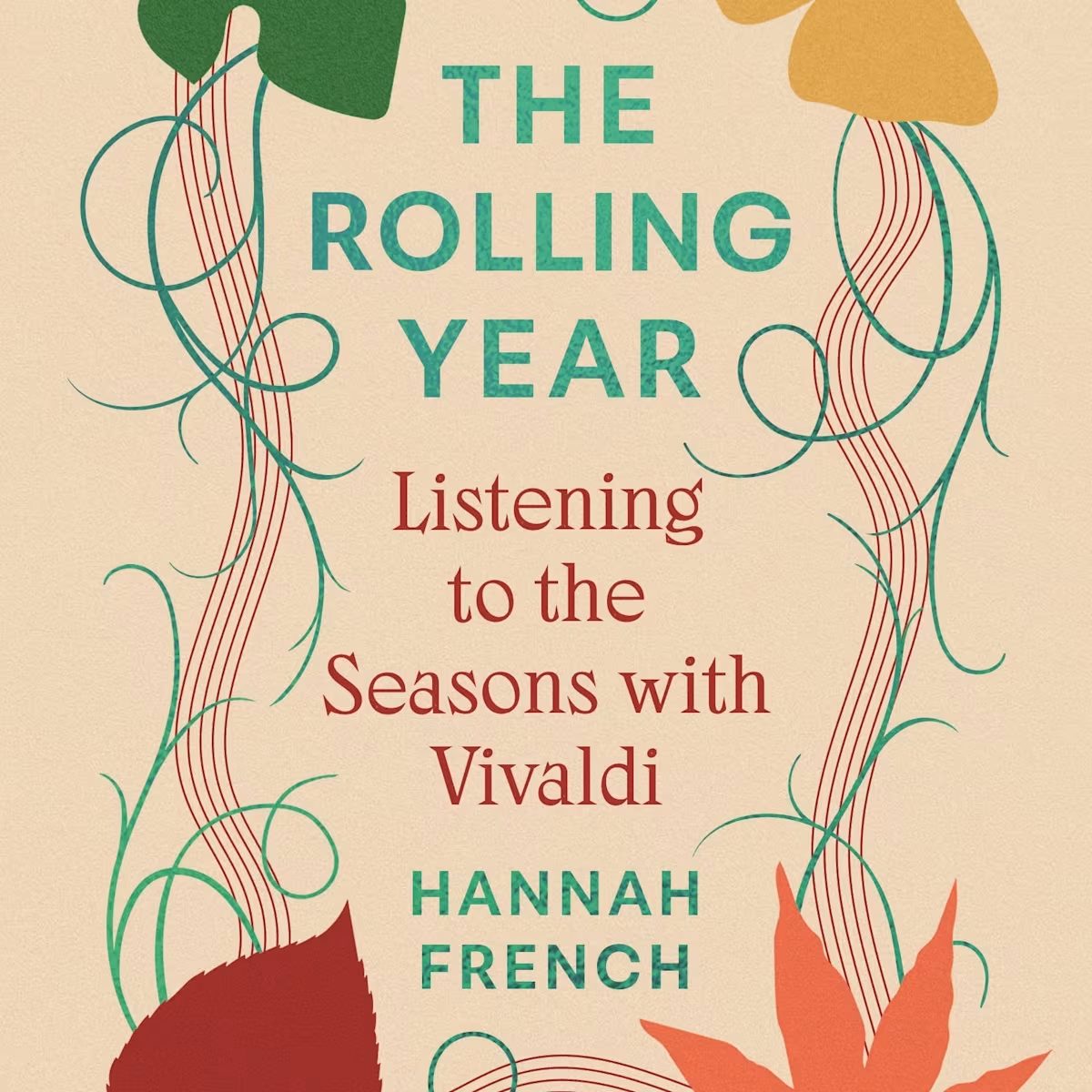Feature
Luke Styles Answers Carissimi
A New Oratorio: Telling the Story of Jephthah's Daughter
Share this

FIRST PUBLISHED 14 JUL 2024
One of the great benefits of the success of the early music movement has been, paradoxically, its galvanising effect on contemporary music. Those musicians who explore period instruments and practices are not just antiquarians. They are often just as engaged in the music of their own time as that of three hundred and more years ago. For this to work, they need composers who are prepared to work outside the confines of the traditional classical orchestra or chamber group. Luckily, most composers are curious beasts, keen to explore new sounds and techniques. This holds true, not just for instrumental composers, but those who are at home in opera and music theatre too.
Luke Styles is one of them. He has written opera for Glyndebourne, where he was Young Composer in Residence, Covent Garden and the Perth Festival in Australia, his other home country. The subjects reflected his dual loyalties. He tackled two historical figures who have become part of national legend: Macbeth and the outback outlaw Ned Kelly.
Styles studied with Wolfgang Rihm and George Benjamin, both accomplished in opera, and three years ago his chamber opera, Awakening Shadow, was premiered at the Cheltenham and Presteigne Festivals, and then Sydney. This year, Fault Lines was produced with the Bournemouth Symphony Orchestra in Cornwall. So when he was approached by early music ensemble La Nuova Musica for a dramatic vocal work, the concept was familiar but, it turned out, not the genre.

The brief he explored was to write a short chamber oratorio that could pair with Giacomo Carissimi's Jephte, written around 1650, probably in Rome, where Carissimi was Maestro di Cappella at the Jesuit church of St. Apollinare. The subject is one that Handel also tackled nearly a century later. Hans Werner Henze made his own version of the Carissimi in 1976, the same year that his massive opera written with the playwright Edward Bond, We Come To The River, was staged at Covent Garden - just as personal aside, I remember that well because it had so many, over 100, solo roles that most of my friends from Glyndebourne (where I was an intern at the time) made their Royal Opera House debut in it.
The original Jephtha story could hardly be darker or morally more uncomfortable. Jephtha vows to sacrifice the first person he sees if he returns home from war victorious. Inevitably, the first person who comes to greet him is his daughter. Luke Styles and the librettist Jessica Walker decided this was simply not good enough and Jephtha should not have been allowed to get away with it. "We decided to rebel and challenge the decision. He should have foreseen that there would be festivities and of course his daughter would be there. When he came back he should have reconsidered, so in our version, Jephthah's Daughter, an angel holds up a mirror and the first person he sees is himself. We are also challenging the religious logic of offering sacrifice for battles."
While the new twenty minute oratorio, premiered at the Wigmore Hall in June with soprano Anna Dennis as the rebellious daughter, is very much a contemporary work, Styles says, "we wanted it to be complementary to Carissimi's so that it keeps fidelity with early music practice, for example using continuo, but does not become pastiche. There's the same milieu and they share strands and commonalities but ours is clearly modern. I did not feel any prohibitions working with an early music ensemble and anyway, my interest had been grounded at Glyndebourne with the Orchestra of the Age of Enlightenment." His version of Macbeth was in that world too, with concerti grossi to break up the scenes. He also found he was drawn more to Carissimi's style than to Monteverdi's, "the use of arioso, of a whole scene depending on a tiny pattern, more like the way speech is used in theatre".
Styles is clearly influenced by many of the same inspirations as Benjamin Britten, not least England's East Coast, where he has been associated with Aldeburgh, and is now Artistic Director of the Deal Festival in Kent - a festival that also had a strong link with the older generation of composers like David Matthews and John McCabe. Looking further back in time, Styles had a residency at the Foundling Hospital in London's Bloomsbury, founded by John Coram to take in babies whose mothers could not look after them, whether because of financial difficulties or social stigma. It was to raise funds for the Foundling Hospital that Handel wrote The Messiah. Styles spent a lot of his time there researching in the library and museum, a process that brought him even closer to understanding baroque instruments and notation, as well as to the Carissimi for this commission.
The instigator of the Jephthah's Daughter project was David Bates, who directs La Nuova Musica, an ensemble he founded in 2007 that received considerable praise last year for their recording on Pentatone of Purcell's Dido and Aeneas, with Fleur Barron as Dido. They had previewed the recording at the 2022 BBC Proms. As a continuation to all of this, Styles says he "has started working with David Bates on a larger neo-baroque opera" - more details as it firms up but he wants to explore the flow between comic and tragic that is so much a feature of the English theatre tradition (including Purcell) and the ramifications that has for the vocal style when paired with orchestra.
A rehearsal of Jephthah's Daughter, La Nuova Musica at Wigmore Hall, June 2024
This programme will tour to additional locations as part of the project supported by Continuo Foundation.
Author: Simon Mundy
Share this
Keep reading

Harpsichord Masterclass Series with Nathaniel Mander
Take your early keyboard playing to the next level with this 16-part online masterclass series led by international harpsichordist, Nathaniel Mander.

In Conversation: Agata Daraškaitė
Continuo Connect catches up with the first violinist of the Consone Quartet, Agata Daraškaitė to discuss her route into music and Consone's recent projects.

The Rolling Year: Listening to the Seasons with Vivaldi
On the 300th anniversary of Vivaldi's The Four Seasons, Dr Hannah French embraces the art of listening seasonally in her exploration of this classic work.



